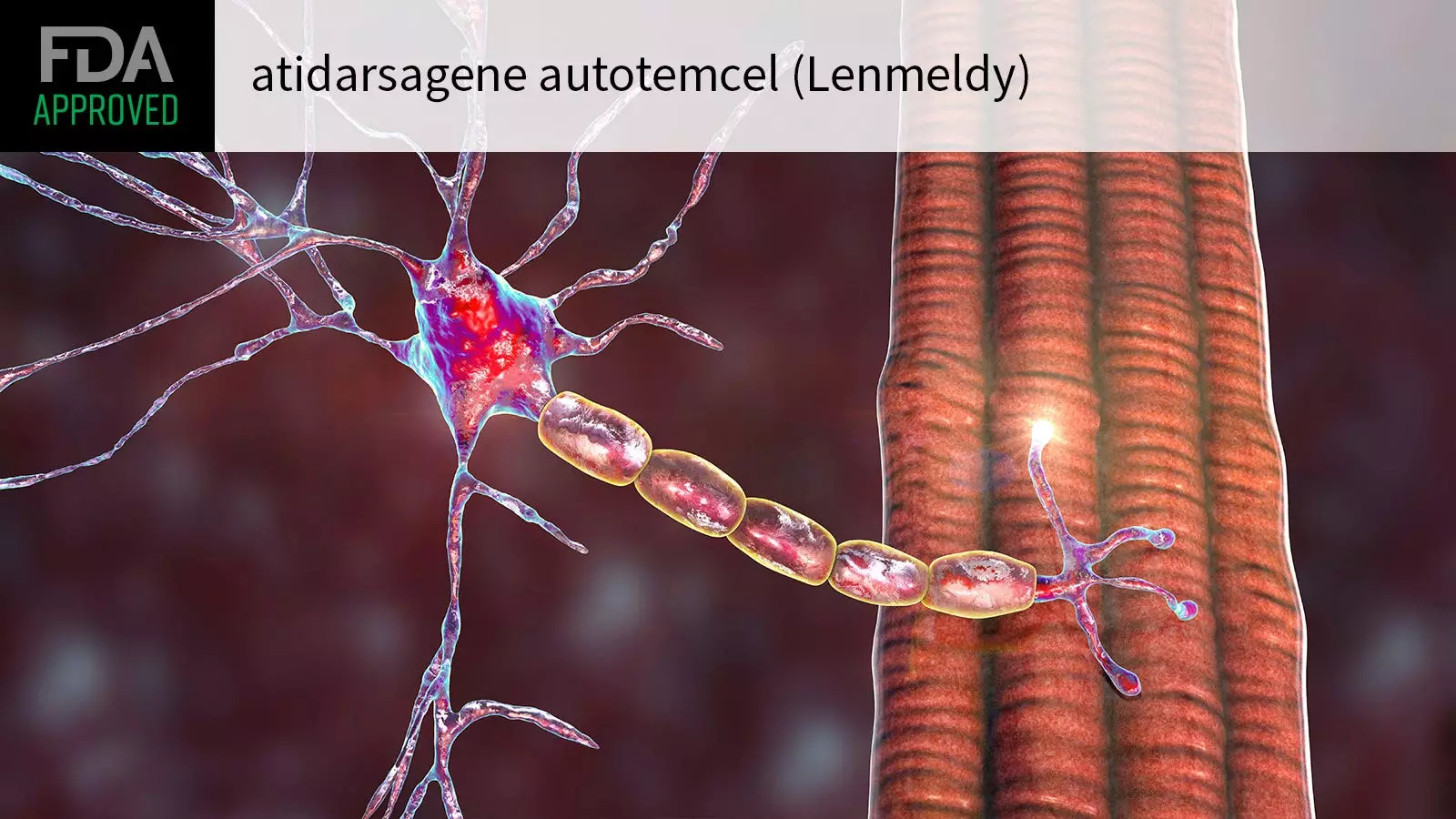Metachromatic leukodystrophy (MLD) is a rare genetic disease that affects the central nervous system and peripheral nervous system, leading to severe motor and cognitive impairment in children. The FDA recently approved atidarsagene autotemcel (arsa-cel; Lenmeldy) as the first gene therapy to treat children with pre-symptomatic late infantile, pre-symptomatic early juvenile, or early symptomatic early juvenile MLD. This groundbreaking approval provides new hope for families affected by this devastating disease.
MLD is caused by a mutation in the ARSA gene, which results in the accumulation of sulfatides in the nervous system. This accumulation leads to progressive dysmyelination, neuroinflammation, and neurodegeneration, ultimately resulting in the loss of motor and cognitive functions and premature death. The disease has three variants based on the age of symptom onset, with the late infantile variant being the most severe. Early detection and treatment are key in managing MLD and improving patient outcomes.
Arsa-cel is a one-time single-dose infusion made from a patient’s own hematopoietic stem cells that have been genetically modified to include functional copies of the ARSA gene. This unique approach aims to restore enzymatic function and slow down the progression of the disease. Clinical trials have shown promising results in children with pre-symptomatic late infantile MLD, with improved motor and cognitive function outcomes compared to natural history data.
The approval of arsa-cel offers a glimmer of hope for children with MLD and their families. By significantly reducing the risk of severe motor impairment or death, this gene therapy has the potential to improve the quality of life for affected individuals. However, it is important to note that arsa-cel treatment is not without risks. Common side effects include fever, low white blood cell count, and respiratory infections. Patients must be closely monitored for complications such as blood clots or encephalitis, and long-term follow-up is recommended to watch for potential blood cancers.
The FDA approval of atidarsagene autotemcel represents a major milestone in the treatment of MLD. This gene therapy offers new hope for children with this rare genetic disease and has the potential to change the course of their lives. While there are risks associated with arsa-cel treatment, the benefits far outweigh the potential drawbacks. Moving forward, ongoing research and vigilance will be crucial in ensuring the safety and efficacy of gene therapy for MLD and other genetic disorders.


Leave a Reply